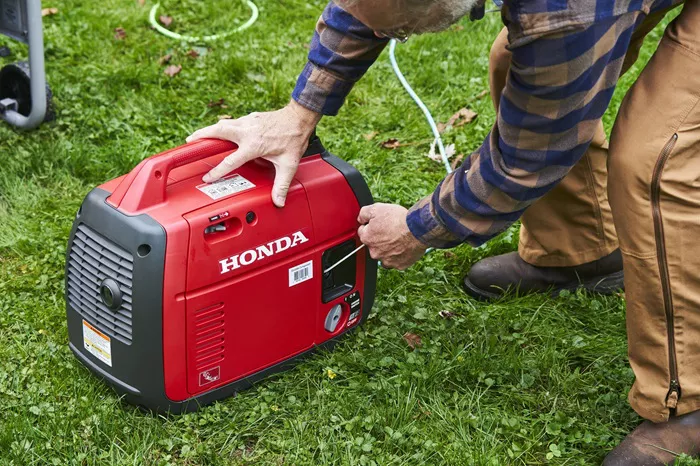When the power goes out, a quiet home generator ensures your life stays uninterrupted without disturbing your peace. Unlike loud, industrial-grade generators, modern quiet generators are designed to operate smoothly with minimal noise. Choosing the best quiet generator for your home depends on several factors, including power output, fuel type, noise level, and portability. In this guide, we’ll explore the top quiet generators, how they work, and what to look for before buying one.
What Makes a Generator Quiet?
Generators produce noise from two main sources:
Engine Noise : Caused by internal combustion and mechanical movement.
Exhaust Noise : Created when exhaust gases exit the muffler.
To reduce noise, manufacturers use:
Soundproofing Materials : Insulated casings absorb vibrations.
Inverter Technology : Adjusts engine speed based on load, reducing noise.
Advanced Mufflers : Minimize exhaust noise.
A quiet generator typically operates below 60 decibels (dB), similar to a normal conversation.
Types of Quiet Home Generators
Inverter Generators (Best for Low Noise & Clean Power)
Inverter generators are the quietest option because they adjust engine speed based on power demand. They produce clean electricity, making them safe for sensitive electronics like laptops and TVs.
Pros
- Ultra-quiet (50-60 dB)
- Fuel-efficient
- Lightweight and portable
Cons
Lower power output (usually under 5,000 watts)
Conventional Portable Generators (Budget-Friendly but Louder)
These generators run at a constant speed, making them louder (65-75 dB). They are more powerful but less efficient for noise-sensitive environments.
Pros
- Higher wattage (up to 10,000W)
- Cheaper than inverter models
Cons
- Noisier
- Heavier and less portable
Standby Generators (Permanent, Ultra-Quiet Solution)
Standby generators automatically turn on during outages and are installed outside the home. They run on propane or natural gas and operate at 60-70 dB.
Pros
- Automatic power backup
- High capacity (up to 20,000W)
Cons
- Expensive installation
- Requires professional setup
Top 5 Quietest Home Generators in 2024
Honda EU2200i (Best Overall for Quiet Operation)
Noise Level: 48-57 dB
Power Output: 2,200W (peak)
Fuel Type: Gasoline
Runtime: 8.1 hours (eco mode)
Why It’s Great
Honda’s inverter technology ensures whisper-quiet performance, making it ideal for camping and home backup.
Generac GP3000i (Best Budget Quiet Generator)
Noise Level: 50-60 dB
Power Output: 3,000W (peak)
Fuel Type: Gasoline
Runtime: 5.7 hours (50% load)
Why It’s Great
Affordable yet reliable, this inverter generator balances power and quiet operation.
Champion 100692 (Best Dual-Fuel Quiet Generator)
Noise Level: 58 dB
Power Output: 4,500W (gasoline) / 4,050W (propane)
Runtime: 9 hours (gasoline)
Why It’s Great
Runs on both gasoline and propane, offering flexibility and decent noise control.
Westinghouse iGen4500 (Best for High Power & Low Noise)
Noise Level: 52 dB
Power Output: 4,500W (peak)
Runtime: 18 hours (25% load)
Why It’s Great
Extremely quiet for its power class and has a long runtime.
Briggs & Stratton 30675 (Best Standby Generator for Homes)
Noise Level: 65 dB
Power Output: 20,000W
Fuel Type: Natural Gas/Propane
Why It’s Great
Provides whole-house power with automatic switching and moderate noise levels.
How to Choose the Best Quiet Generator for Your Home
Determine Your Power Needs
Calculate the total wattage of essential appliances:
Refrigerator: 600-800W
Lights: 60-100W each
Sump pump: 800-1,500W
AC Unit: 2,000-5,000W
Choose a generator with at least 20% extra capacity to avoid overloading.
Check Noise Ratings
Look for generators under 60 dB if noise is a concern.
Consider Fuel Efficiency & Runtime
Inverter generators are more fuel-efficient than conventional models. Propane generators offer cleaner operation but may have less power.
Portability vs. Permanent Installation
Portable: Good for occasional use, camping, or small homes.
Standby: Best for whole-house backup but requires professional installation.
Maintenance Tips for Quiet Generators
To keep your generator running smoothly:
Change Oil Regularly : Every 50-100 hours of use.
Use Fresh Fuel : Stale gasoline can clog the carburetor.
Store Properly : Keep in a dry place and run monthly to prevent corrosion.
Check Air Filters : Clean or replace as needed.
Conclusion
The best quiet generator for your home depends on your power needs, budget, and noise tolerance. Inverter generators are the quietest, while standby generators offer seamless backup power. For most homeowners, the Honda EU2200i or Westinghouse iGen4500 provide the best balance of quiet operation and reliable power. If you need whole-house backup, a Briggs & Stratton standby generator is a solid investment. By understanding how generators work and what features to look for, you can find the perfect quiet generator to keep your home running smoothly—without the noise.

